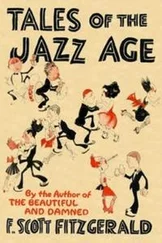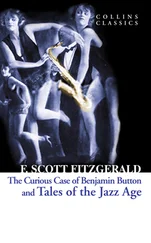A. L. O. E. - Hebrew Heroes - A Tale Founded on Jewish History
Здесь есть возможность читать онлайн «A. L. O. E. - Hebrew Heroes - A Tale Founded on Jewish History» — ознакомительный отрывок электронной книги совершенно бесплатно, а после прочтения отрывка купить полную версию. В некоторых случаях можно слушать аудио, скачать через торрент в формате fb2 и присутствует краткое содержание. Жанр: foreign_antique, foreign_prose, на английском языке. Описание произведения, (предисловие) а так же отзывы посетителей доступны на портале библиотеки ЛибКат.
- Название:Hebrew Heroes: A Tale Founded on Jewish History
- Автор:
- Жанр:
- Год:неизвестен
- ISBN:нет данных
- Рейтинг книги:4 / 5. Голосов: 1
-
Избранное:Добавить в избранное
- Отзывы:
-
Ваша оценка:
- 80
- 1
- 2
- 3
- 4
- 5
Hebrew Heroes: A Tale Founded on Jewish History: краткое содержание, описание и аннотация
Предлагаем к чтению аннотацию, описание, краткое содержание или предисловие (зависит от того, что написал сам автор книги «Hebrew Heroes: A Tale Founded on Jewish History»). Если вы не нашли необходимую информацию о книге — напишите в комментариях, мы постараемся отыскать её.
Hebrew Heroes: A Tale Founded on Jewish History — читать онлайн ознакомительный отрывок
Ниже представлен текст книги, разбитый по страницам. Система сохранения места последней прочитанной страницы, позволяет с удобством читать онлайн бесплатно книгу «Hebrew Heroes: A Tale Founded on Jewish History», без необходимости каждый раз заново искать на чём Вы остановились. Поставьте закладку, и сможете в любой момент перейти на страницу, на которой закончили чтение.
Интервал:
Закладка:
And with a somewhat constrained interchange of parting courtesies, the free Greek and the sycophant of a tyrant went on their several ways.
CHAPTER II.
THE MIDNIGHT BURIAL
The scene which he had witnessed had left the mind of Lycidas in an excited and feverish state. The cooling breeze which whispered amongst the leaves of the olives, and the solitude of the secluded place where Pollux had left him, were refreshing to the young Greek's spirit. He threw himself on the grass beneath one of the trees, leant against its trunk, and gazed upwards at the stars as, one by one, they appeared, like gems studding the deep azure sky.
"Are these brave spirits now reigning in one of these orbs of beauty?" thought the poet; "or are the stars themselves living souls, spirits freed from the chains of matter, shining for ever in the firmament above? I must know more of that Hebrew religion, and seek out those who can initiate me into its mysteries, if it be lawful for a stranger to learn them."
And then the thoughts of Lycidas turned to his poem, and he tried to throw into verse some of the ideas suggested to his mind by the martyrdoms which he had witnessed, but he speedily gave up the attempt in despair.
"Poetic ornament would but mar the grand outlines of such a history," he murmured to himself; "who would carve flowers upon the pyramids, or crown with daisies an obelisk pointing to the skies!"
Gradually sleep stole over the young Greek, his head drooped upon his arm, his eyelids closed, and he slumbered long and deeply.
Lycidas was awakened by sounds near him, low and subdued, the cautious tread of many feet, the smothered whisper, and the faint rustle of garments. The Athenian opened his eyes, and gazed from his place of concealment behind the thick branching stem of the olive on a strange and striking scene.
The moon, full and round, had just risen, but the foliage of the trees as yet obscured most of her light, as her silver lamp hung near the horizon, casting long black shadows over the earth. Several forms were moving about in the faint gleam, apparently engaged in some work which needed concealment, for none of them carried a torch. Lycidas, himself silent as the grave, watched the movements of those before him with a curiosity which for a time so engrossed his mind as to take away all sense of personal danger, though he soon became aware that the intrusion of a stranger on these mysterious midnight proceedings would not only be unwelcome, but might to himself be perilous.
The group of men assembled in that retired spot were evidently Hebrews, and as the eyes of Lycidas became accustomed to the gloom, and the ascending moon had more power to disperse it, he intuitively singled out one from amongst them as the leader and chief of the rest. Not that his tunic and mantle were of richer materials than those of his comrades; plain and dusty with travel were the sandals upon his feet, and he wore the simple white turban which a field-labourer might have worn. But never had turban been folded around a more majestic brow, and the form wrapped in the mantle had the unconscious dignity which marks those born to command. The very tread of his sandalled feet reminded the Athenian of that of the desert lion, and from the dark deep-set eye glanced the calm soul of a hero.
"Here be the place," said the chief, if such he were, pointing to the earth under the branches of the very tree against the trunk of which, on the further side, the temple of Lycidas was pressed, as he bent eagerly forward to watch and to listen.
Not a word was uttered in reply; but the men around, after laying aside their upper garments, set to work to dig what appeared to be a wide trench. The leader himself threw off his mantle, took a spade, and laboured with energy, bringing the whole force of his powerful muscles to bear on his humble toil. All worked in profound silence, nor paused in their labour except now and then to listen, like men to whom danger had taught some caution.
Whilst the men went on with their digging, Lycidas strained his eyes to distinguish the outlines of a group at some paces' distance, which doubtless, though separated from them, belonged to the same party as those so actively employed before him. Two forms appeared to be seated on the ground in a spot evidently chosen for its seclusion; one of them was clothed in dark garments, the other was shrouded in a large white linen veil. Other figures in white seemed to be stretched upon the ground in repose. Lycidas watched this silent group for hours, and all remained motionless as marble, save that ever and anon the dark female figure slightly swayed backwards and forwards with a rocking motion, and that several times the veiled head was turned with a quick movement, as of alarm, when the breeze rustled in the olives a little more loudly than usual, or bore sounds from the city to the woman's sensitive ear.
Meanwhile the work of digging proceeded steadily, and the mound of earth thrown out grew large, for the arms of those who laboured were strong and willing, and no man paused either to rest or to speak save once. It was almost a relief to Lycidas to hear at last the sound of a human voice from one of those phantom-like toilers by night. He who spoke was the fiercest-looking of the band, with something of the wildness of Ishmael's race on features whose high strongly-marked outlines showed the Hebrew cast of countenance in its most exaggerated type.
"There's more thunder in the air," he observed, resting for a minute on his spade, and addressing himself to him whom Lycidas had mentally named "the Hebrew prince," on account of his commanding height and noble demeanour, and the deference with which his order had been received.
No answer was returned to the remark, and the wild-looking Jew spoke again, —
"Have you heard that Apelles starts to-morrow for Modin, charged with a mission from the tyrant to compel its inhabitants to do sacrifice to one of his accursed idol-gods?"
"Is it so? then ere daybreak I set out for Modin," was the reply.
"It may be that the venerable Mattathias would rather have you absent," observed the first speaker.
"Abishai, when the storm bursts, a son's place is by the side of his father," said the princely Hebrew; and as he spoke he threw up a spadeful of earth from the pit which Lycidas doubted not was meant for a grave.
Again the work proceeded in silence. The moon had risen above the trees before that silence was once more broken, this time by the leader of the band, —
"It is deep enough now, and broad enough; go ye and bring the honoured dead."
The command was at once obeyed. All the men present, excepting the chief himself, who remained standing in the grave, went towards the group which has been previously mentioned. Interest chained Lycidas to the spot, though it occurred to his mind that prudence required him to seize this favourable opportunity of quietly making his escape.
The Greek remained, watching in the shadow, as on the rudest of biers, formed by two javelins fastened by cross-bars together, the swathed forms of the dead, one after another, were borne to the edge of the pit. They were followed by the two female mourners that had kept guard over the remains while the grave was being prepared. The first of these was a tall, stately woman, with hair which glistened in the moonbeams like silver, braided back from a face of which age had not destroyed the majestic beauty. Sternly sad stood the Hebrew matron by the grave of the martyred dead; no tear in her eyes, which were bright with something of prophetic fire. So might a Deborah have stood, had Sisera won the victory, and she had had to raise the death-wall over Israel's slain, instead of the song of triumph to hail the conquerors' return.
The other female form, which was smaller, and exquisitely graceful in its movements, remained slightly retired, and still closely veiled. Lycidas remarked that the eyes of the leader watched that veiled form, as it approached, with a softened and somewhat anxious expression. This was, however, but for some moments, and the Hebrew then gave his undivided attention to the pious work on which he was engaged.
Читать дальшеИнтервал:
Закладка:
Похожие книги на «Hebrew Heroes: A Tale Founded on Jewish History»
Представляем Вашему вниманию похожие книги на «Hebrew Heroes: A Tale Founded on Jewish History» списком для выбора. Мы отобрали схожую по названию и смыслу литературу в надежде предоставить читателям больше вариантов отыскать новые, интересные, ещё непрочитанные произведения.
Обсуждение, отзывы о книге «Hebrew Heroes: A Tale Founded on Jewish History» и просто собственные мнения читателей. Оставьте ваши комментарии, напишите, что Вы думаете о произведении, его смысле или главных героях. Укажите что конкретно понравилось, а что нет, и почему Вы так считаете.











